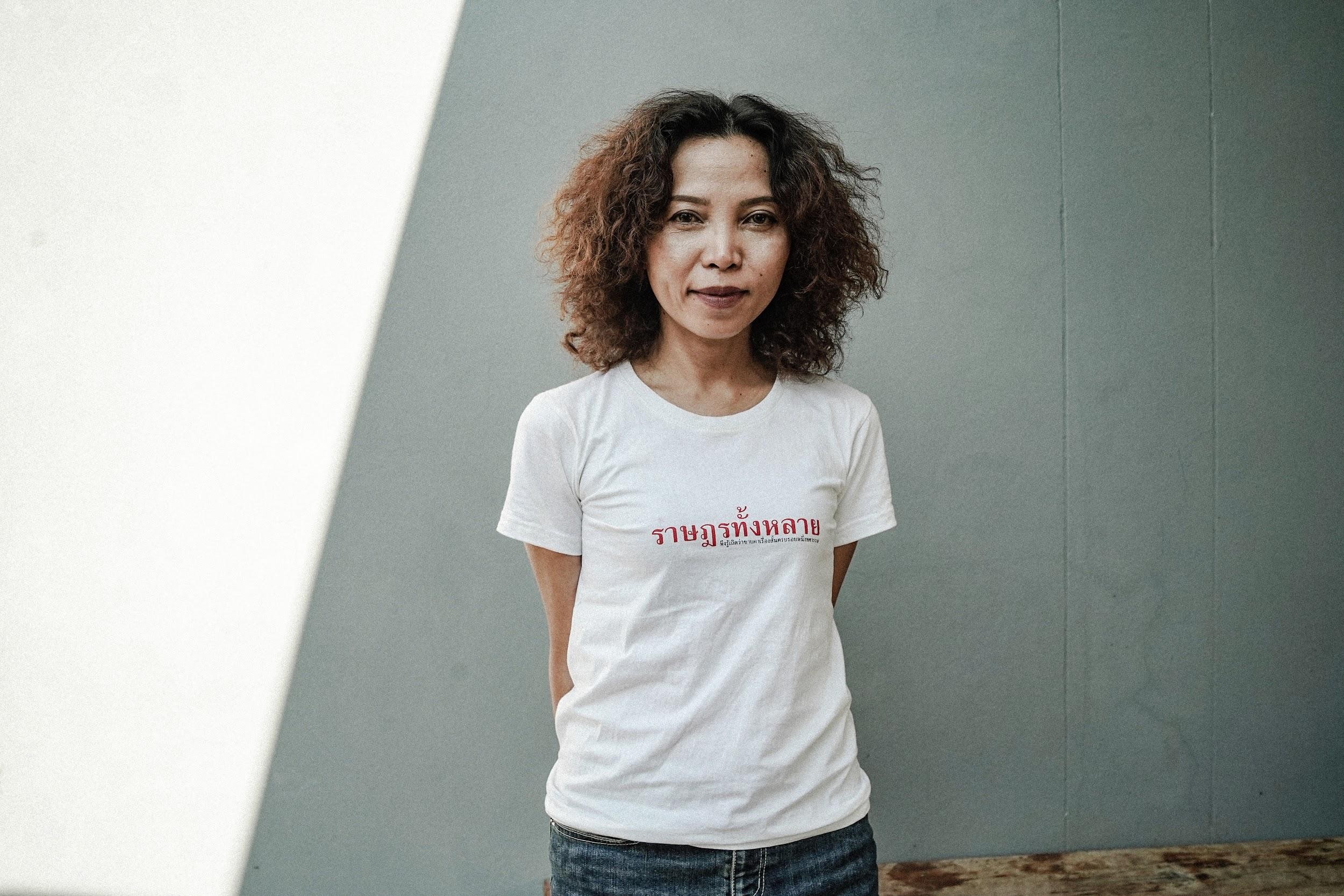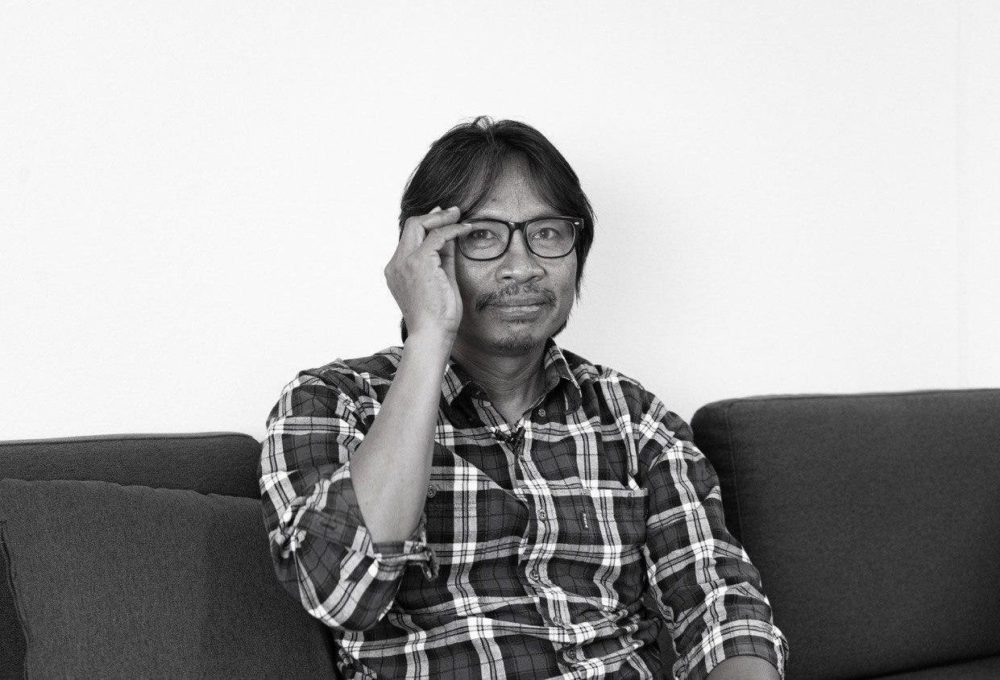
Cover image Ratchaprasong CC BY-NC 2.0
1,094 words / 5-min read
On the occasion of the tenth anniversary of the crackdown on the Red Shirt protests in May 2010, and as part of the special series “Remembrances of Red Trauma,” The Isaan Record held an online panel discussion last week.
The Isaan Record’s Thai editor Hathairat Phaholtap talked to Wattana Chantasin, a lawyer for political prisoners, and Saowanee T. Alexander and Teerapol Anmai from Ubon Ratchathani University’s Faculty of Liberal Arts who are the founders of the Redfam Fund, an effort to help the families of Red Shirts facing political persecution.
The panel focused on Isaan’s people participation in the protests, the anti-Red Shirt discourse and the aftermath of the government’s violent crackdown that left at least 94 people dead.
Why did Isaan people join the protests?
Saowanee T. Alexander, a linguistics professor at Ubon Ratchathani University, traces Isaan people’s increased political awareness back to the adoption of the 1997 constitution. The charter was popularly called “the People’s Constitution” as it was drafted in a public process that familiarized people with the concepts of equality and political rights.
Rural people came to understand that their votes mattered and they started to choose parties whose policies benefited them. While many villagers might not have been able to explain what democracy was, they did understand that everyone, from every occupation and in all income levels, ought to have equal political rights in a democracy, Saowanee said.
“Villagers have become aware that their voice has meaning,” Saowanee says. “They want people to be equal in a legal sense, not in a sense that everyone is equally rich or everyone is a teacher. They want equality in terms of voting.”
But in 2006, a military junta ousted the government of Thaksin Shinawatra and abolished the 1997 charter. Thaksin’s government had been extremely popular in the North and Northeast, especially for implementing universal healthcare, boosting the local economy, and providing access to cheap loans.
“The Thaksin government came up with policies that benefited Isaan people, and people’s lives were continuously getting better,” says Teerapol Anmai who teaches mass communication at Ubon Ratchathani University.
The political choices of Isaan voters have had little to do with vote buying but are informed by parties’ policies that support people’s ability to earn a living, Teerapol adds.
“People’s politics vary, depending on the economic policies they benefit from, not on the amount of money from vote buying or the money they receive through welfare schemes,” says Teerapol. “It depends on policies that help them start a new life without having to wait for giveaways from the government.”
Saowanee and Teerapol argue that the coup against Thaksin laid the seed for Isaan people’s participation in the 2010 political protests. They joined the Red Shirts because they wanted to protect their rights and the political parties and governments they had voted for.
The repeated ousting of governments voted in by a majority of Isaan people made many in the region believe that their political rights and choices were being disregarded by a powerful elite in Bangkok.
“People from Isaan and rural areas were looked down upon for their poverty and lack of education,” says Saowanee. Because they are uneducated, they were seen as not knowing what democracy and politics mean”

Lethal backlash
From discussions with Red Shirts in Ubon Ratchathani, Teerapol observed that many still question the military’s use of lethal force against the protesters in 2010.They question why the government cracked down against its own people who were protesting–mostly peacefully–for new elections.
Teerapol and Saowanee believe that the condescending discourse against the Red Shirts played a role in making the violent dispersal of the protesters acceptable in the eyes of some parts of the public.
“During that time, the discourse used against the Red Shirts accused them of being terrorists and burning down the country,” says Teerapol. “Video clips were edited to portray them as cruel people who tried to incite hatred in the country, which was another reason that led to the military killings of Red Shirts.”
He adds that while the military understands itself as the protector of the people, it perceived the masses of Red Shirts protesters as criminals whose lives were not worth protecting.
“In the 2010 Red Shirt protests, the military and government didn’t consider people as having rights and being able to express themselves politically,” Teerapol argues. “They also considered them as citizens who disobeyed the authorities.”
“People who protest shouldn’t be killed, no matter what color their shirts are. Whether you’re a Red Shirt or Yellow Shirt, no one deserves to be killed by soldiers,” stresses Teerapol. “Civilized countries don’t use the military to crack down on people because soldiers have a duty to protect people in the country.”

Accused of being criminals
In the aftermath of the dispersal of the protest in May 2019, the accusations against the Red Shirts continued. According to lawyer Wattana Chantasil, more than 500 arrest warrants were issued against people from Isaan alone. Later on, 21 of them were persecuted, and four are still in prison. The court dismissed charges in some cases due to lack of evidence, and those who were found not guilty were compensated for the time they spent incarcerated.
“I feel sorry for most Isaan people involved in the case,” Wattana says. “Some of them shouldn’t have been charged and many villagers say they didn’t receive justice, which is true, because justice depends on how you interpret it.”
Teerapol notes that Thai law protects government officials from being persecuted for acts committed during a state of emergency which cleared the government in 2010 of any responsibility for the killings.
“I call for the wrongdoers to be persecuted so that the culture of impunity that protects government officials who killed people can be destroyed,” Teerapol says.
The online seminar ended on a hopeful note with Teerapol praising his students at Ubon Ratchathani University for their growing tendency to publicly express democratic attitudes.
“I think the government, those in power, and the military continue to have a lot of power,” Teerapol says. “But that power will not be total because people will learn and stand up for their rights and demand their own power.”




